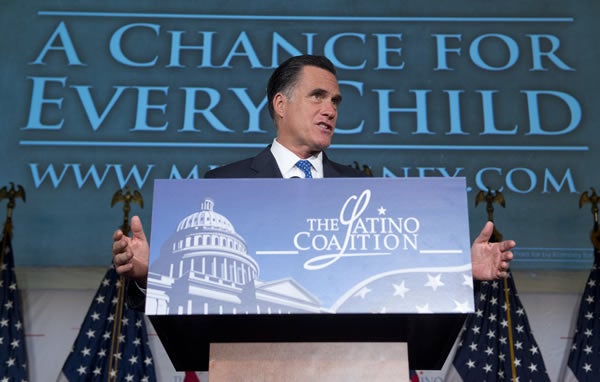Mitt Romney yesterday released his plan to reform America’s ailing education system. It goes big on school choice and parental empowerment and calls for increased transparency of results. Along the way, it admonishes education unions — and rightly so — for standing in the way of reform.
Notably, Romney’s plan would expand D.C.’s embattled Opportunity Scholarship Program (OSP), which provides vouchers to low-income children in the nation’s capital. President Obama has been hostile toward the voucher program. Most recently he capped enrollment in OSP, after having agreed to its reauthorization just last year.
Romney’s instincts to expand school choice and the OSP are spot-on. Since D.C. education is under the jurisdiction of Congress, it’s entirely appropriate to call for expanding this voucher program.
Romney also proposes making federal education funding for low-income children and children with disabilities portable, effectively voucherizing Title I of No Child Left Behind (NCLB) and the Individuals with Disabilities Education Act (IDEA). This is a laudable goal, but to better reflect the tenets of federalism, he should amend the language to let states make Title I and IDEA funding portable.
In addition, Romney said: “To receive the full complement of federal education dollars, states must provide students with ample school choice. In addition, digital learning options must not be prohibited. And charter schools or similar education choices must be scaled up to meet student demand.” (Emphasis added.)
Yes, school choice, digital learning, and charters are imperative to improving America’s education system. But the federal government should not be dictating what states must do in terms of education policy. Let’s not fall into the trap of becoming conservative technocrats — placing mandates on states to implement certain policies with which we agree. That’s the mistake some conservatives made with No Child Left Behind.
Read the rest of Lindsey Burke’s article, Romney’s Education Agenda: With a Few Edits, It Could Be Great, at National Review.

































3 Replies to “Romney’s Education Agenda: With a Few Edits, It Could Be Great”